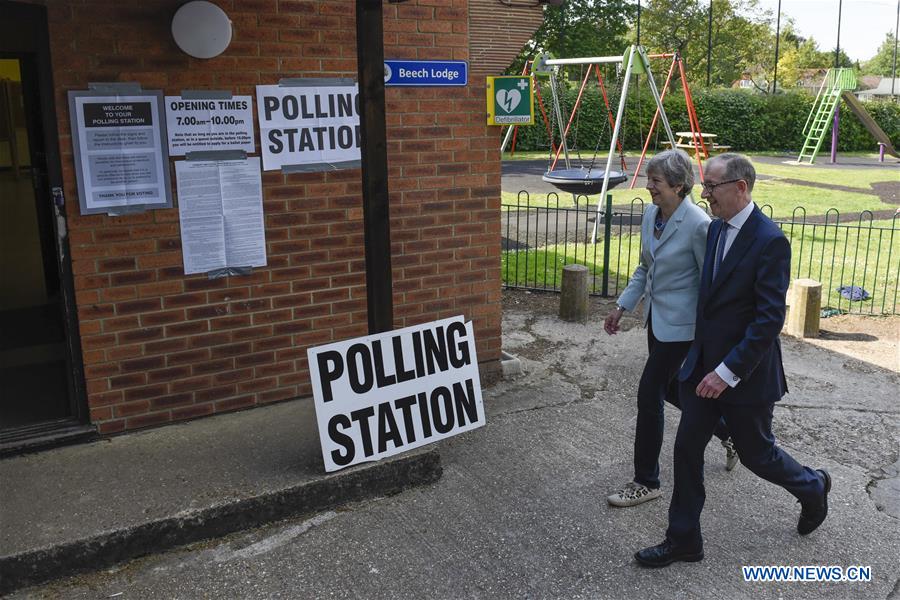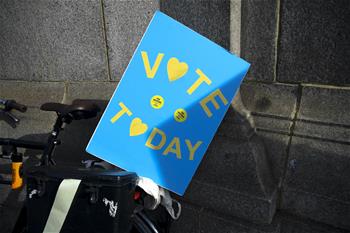 ?
?British Prime Minister Theresa May (L) arrives to vote at a polling station in Sonning, Britain, on May 23, 2019. Voters across Britain cast their ballots on Thursday for the European Parliament elections as it is widely forecast that Brexit Party will take a lead. (Xinhua/Stephen Chung)
LONDON, May 23 (Xinhua) -- Voters across Britain cast their ballots on Thursday for the European Parliament elections as it is widely forecast that Brexit Party will take a lead.
Britain, split into 12 regions for the elections, is among the first European countries to kick off the elections. A total of 73 members, known as MEPs, will be elected in the constituencies.
Polling stations in Britain are open from 7:00 to 22:00 BST. Results will come out after all European Union (EU) nations have voted during the next three days, with the voting process completed by 22:00 BST on Sunday.
A man, who works here and whose name is Jeremy, told Xinhua that he has not decided whether to vote or not, because the election has descended to the de-facto second Brexit referendum in this country.
"People will take sides about Brexit and that would make the elections meaningless," he said, adding that he expects a low turnout throughout the country.
The results from Britain will show whether the newly-launched Brexit Party, founded by veteran Euro-sceptic Nigel Farage, would win the largest number of the 73 British seats in the European Parliament as is forecast.
The latest poll gave them 37 percent, while Theresa May's Conservatives are down to 7 percent, with the likelihood of the party's worst ever performance in an election since it was founded in the 1830s.
In Liverpool, retired teacher Pauline Roy said she will vote for Labour.
Roy told Xinhua she had considered spoiling her ballot paper. "But upon reflection, I have decided I must vote (for) Labour, mainly because I trust them, more than any other party, to deliver Brexit," she said.
"More than anything else, I want this issue sorted so that we can address the issues, which are running down our country," added Roy, who voted to leave in the 2016 referendum.
The results from Britain will be a sideshow as the other 27 member states study changes in the political map of Europe.
Currently, the 751 MEPs are divided into a number of groupings, reflecting their political allegiances.
Initially, the elections were not planned as Britain prepared to leave the EU on March 29. However, at the European summit in April, the British government and the European Council agreed to delay Brexit until Oct. 31.
It is uncertain for how long British MEPs will sit because of the uncertainties over Brexit.
The elections are the ninth time Britain has elected MEPs to the European Parliament.











